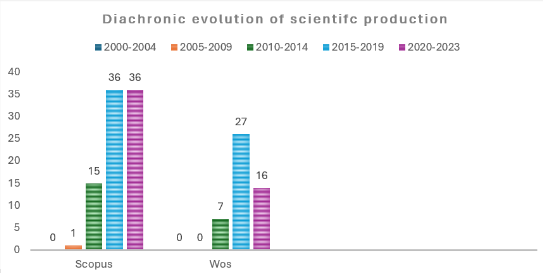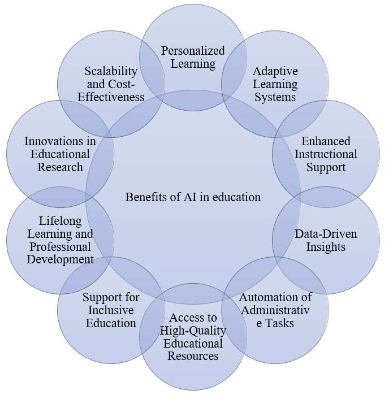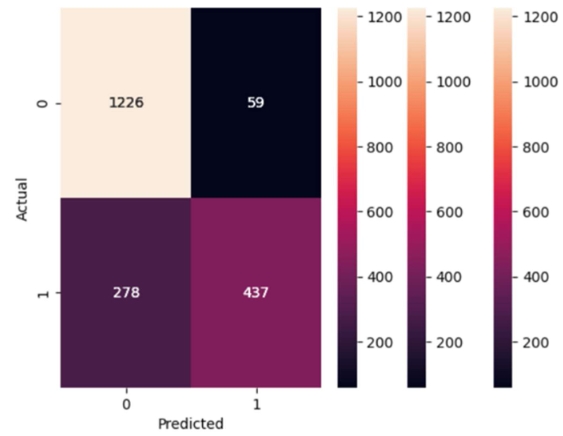Reforming vocational education in the UK: The role of vocational education
Abstract
Education is considered a tool for addressing issues in society. This paper identifies the role of education and how it fits with social theory. Through focusing on vocational education this article considers issues to address challenges within UK productivity, focusing on post-compulsory 16–19 years old education. The article finds that there is a limited appreciation of vocational education by society and that there have been numerous attempts to achieve parity with A levels, which has never been achieved. The article ends by providing a reflection on whether it is too early to tell and sets the challenge that while it is important to see if T levels, which were introduced in September 2020, do improve productivity and economic prosperity, it is more important to research whether they actually create parity within the qualification structure.
References
[1]Özel ID. Politics of delegated governance: reforming vocational education and training. Socio-Economic Review. 2022; 20(3): 1361-1394. doi: 10.1093/ser/mwab053
[2]Bhattarai PC. Technical and Vocational Education and Training (TVET): What Next? International Journal of Multidisciplinary Perspectives in Higher Education. 2021; 5(1): 106-112. doi: 10.32674/jimphe.v5i1.2505
[3]Nakar S, Trevarthen R. Investigating VET teachers’ experiences during and post COVID. Policy Futures in Education. 2024.
[4]Billett S. Virtual conference report on Improving the image of TVET. UNESCO-UNEVOC; 2018.
[5]Yun Lee T. Education in Greek and Roman antiquity. Boston Brill; 2001.
[6]Anderson RD. European universities from the enlightenment to 1914. Oxford University Press; 2004.
[7]Baines J. Literacy and Ancient Egyptian Society. Man. 1983; 18(3): 572. doi: 10.2307/2801598
[8]Palmer J, Bresler L, Cooper D, et al. Fifty Major Thinkers on Education: From Confucius to Dewey. Psychology Press; 2001.
[9]Cook TG. The history of education. Routledge; 1974.
[10]Parliament. The evolution of the National Curriculum: from Butler to Balls. Available online: https://publications.parliament.uk/pa/cm200809/cmselect/cmchilsch/344/34405.htm (accessed on 16 July 2019).
[11]Christodoulou D. Severn myths about education. Routledge; 2004.
[12]Coughlan S. Education, Education, Education. Available online: http://news.bbc.co.uk/2/hi/uk_news/education/6564933.stm (accessed on 7 June 2019).
[13]Machin S, Vignotes A. what’s the good of Education? In: The economics of Education in the UK. Princeton university press; 2005.
[14]Foucault M. The order of things. Vintage; 2002.
[15]Foucault M, Rabinow P. The Foucault reader, an introduction to Foucault thoughts. Penguin; 1991.
[16]Nakar S, Olssen M. The effects of neoliberalism: Teachers’ experiences and ethical dilemmas to policy initiatives within vocational education and training in Australia. Policy Futures in Education. 2021; 20(8): 986-1003. doi: 10.1177/14782103211040350
[17]Harrington A. Introduction: what is social theory? In: Harrington A (editor). Modern social theory: An introduction. Oxford; 2005.
[18]Elliot A. Contemporary social theory: An introduction. Routledge; 2008.
[19]Jones P, Bradbury. Introducing social policy. 3rd ed. Cambridge; 2018.
[20]Murphy M. Social Theory: A New Introduction. Palgrave-MacMillan; 2021.
[21]Bosio E, Torres CA. Global citizenship education: An educational theory of the common good? A conversation with Carlos Alberto Torres. Policy Futures in Education. 2019; 17(6): 745-760. doi: 10.1177/1478210319825517
[22]Giddens A, Sutton PW. Essential concepts in sociology, 2nd ed. Polity; 2017.
[23]Whitty G. Teacher professionalism in new times. Journal of In-Service Education. 2000; 26(2): 281-295. doi: 10.1080/13674580000200121
[24]Merriam-Webster. Definition of Modernity. Available online: https://www.merriam-webster.com/dictionary/modernity (accessed on 2 August 2019).
[25]Frank J. Mitigating Against Epistemic Injustice in Educational Research. Educational Researcher. 2013; 42(7): 363-370. doi: 10.3102/0013189x12457812
[26]Clarke M. The other side of education. A Lucian Critique of neoliberal Education Policy. The Journal of Educational Alternatives. 2012; 1(1): 46-60.
[27]McIvor J. Education must not be ‘political football’. Available online: https://www.bbc.co.uk/news/uk-scotland-39581296 (accessed on 16 July 2019).
[28]Clarke M. Eyes wide shut: the fantasies and disavowals of education policy. Journal of Education Policy. 2018; 35(2): 151-167. doi: 10.1080/02680939.2018.1544665
[29]Grenfell MJ. Pierre Bourdieu. London Bloomsbury; 2007.
[30]Morrow RA, Torres CA. Social Theory and Education: A critique of social and cultural reproduction. State University of New York Press; 1995.
[31]Smith MK. What is education? A definition and discussion. The encyclopaedia of informal education. Available online: http://infed.org/mobi/what-is-education-a-definition-and-discussion/ (accessed on 17 July 2019).
[32]Atkins L, Wallace S. Qualitative Research in Education. London Sage; 2012
[33]Coe RJ. The nature of educational research. In: Arthur J, Waring M, Coe R, et al. (editors). Research Methods and Methodologies in Education. SAGE Publications Ltd; 2012.
[34]Thompson CM. What is the point of education? A functionalist perspective. Available online: https://sociologytwynham.com/2008/12/20/what-is-the-point-of-education/ (accessed on 17 July 2019).
[35]Crossman A. Understanding Meritocracy from a Sociological Perspective. Available online: https://www.thoughtco.com/meritocracy-definition-3026409 (accessed on 17 June 2019).
[36]Thompson CM. What is the point of education? A Marxist perspective Available online: https://sociologytwynham.com/2008/12/20/marxism-and-education/ (accessed on 17 July 2019).
[37]Salvador M. Foundation of education: Its meaning. Available online: https://www.slideshare.net/marksalvador3386/four-basic-purposes-of-education (accessed on 16 July, 2019).
[38]Gibb N. The purpose of education. Available online: https://www.gov.uk/government/speeches/the-purpose-of-education (accessed on 2 August 2019).
[39]O’Connor PJ, Trussell ST. The marketing of vocational education. Vocational Education Journal. 1997; 62(8): 32-36.
[40]Fayyaleh N, Fogarty L. Transforming Vocational Education in Palestine by Integrating 21st Century Skills: Effects, Challenges and Opportunities. Journal of Education in Muslim Societies. 2024; 5(2): 31-47. doi: 10.2979/jems.00003
[41]Davy N, Frankenberg A. Typology of apprenticeships in higher vocational education. Available online: http://www.apprenticeships.eu/wp-content/uploads/120190/04/App (accessed on 2 August 2019).
[42]Chuan A, Ibsen CL. Skills for the Future? A Life Cycle Perspective on Systems of Vocational Education and Training. ILR Review. 2022 75(3): 638-664. doi: 10.1177/00197939211015205
[43]World Bank Group. World Development Report: The changing nature of work. World Bank Group; 2019.
[44]Prabhat S. Difference between similar terms and objects. World Press; 2018.
[45]Avis J, Bathmaker AM, Parsons J. Reflections from a time log diary: towards an analysis of the labour process within further education. Journal of Vocational Education & Training. 2001; 53(1): 61-80. doi: 10.1080/13636820100200143
[46]Simkins I, Lumby I. Cultural transformation in further education? mapping the debate. Research in Post-Compulsory Education. 2002; 7(1): 9-25. doi: 10.1080/13596740200200116
[47]Spenceley L. ‘Smoke and mirrors’: an examination of the concept of professionalism within the FE sector. Research in Post-Compulsory Education. 2006; 11(3): 289-302. doi: 10.1080/13596740600916534
[48]Randle K, Brady N. Managerialism and professionalism in the ‘cinderella service.’ Journal of Vocational Education & Training. 1997; 49(1): 121-139. doi: 10.1080/13636829700200007
[49]Further Education National Training organisation. Gaps in the provision of UK-wide occupational standards for support roles in further education sector. FENTO; 2001.
[50]Department for Education (DfE). Foundations for Quality. The independent review of early education and childcare qualifications. Final Report Available online: https://assets.publishing.service.gov.uk/media/5a74af28ed915d0e8e39a315/Nutbrown-Review.pdf (accessed on 7 June 2019).
[51]Department for Education (DfE). Policy Paper: Introduction of T Levels. Available online: https://www.gov.uk/government/publications/introduction-of-t-levels/introduction-of-t-levels (accessed on 12 June 2024).
[52]Department for Education (DfE). Review of Vocational Education: the Wolf report. Available online: https://www.gov.uk/government/publications/review-of-vocational-education-the-wolf-report (accessed on 5 June 2019).
[53]Department for Education (DfE). Education and Childcare—T Level Outline content: final version for inclusion in ITT. Department for Education; 2018.
[54]Boles N. Post-16 skills plan and independent report on technical education. Available online: https://www.gov.uk/government/publications/post-16-skills-plan-and-independent-report-on-technical-education (accessed on 7 June 2019).
[55]BBC News. Vocational training shake-up ‘most ambitious since A-levels’. Available online: https://www.bbc.co.uk/news/uk-39169490 (accessed on 7 June 2019).
Copyright (c) 2024 Lyn Johnston, Alan Johnston

This work is licensed under a Creative Commons Attribution 4.0 International License.









